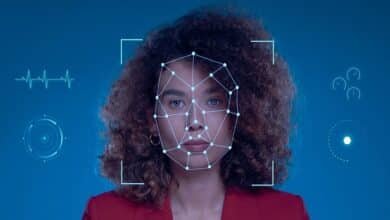Face ID: The Future of Secure Authentication

Face ID is a revolutionary biometric technology designed to enhance security and convenience by using facial recognition for authentication. With its ability to accurately identify individuals based on their unique facial features, Face ID has become a cornerstone of modern security systems. This advanced technology is widely adopted in various devices and applications, offering a seamless and secure alternative to traditional authentication methods.
Key Features of Face ID
Face ID boasts several key features that set it apart from other biometric technologies. The keyword “Face ID” highlights capabilities such as high accuracy in facial recognition, real-time authentication, and advanced encryption for data security. These features ensure that Face ID provides a reliable and efficient method for verifying identities, making it a preferred choice for secure access and authentication.
How Face ID Works
Understanding how Face ID works is crucial for appreciating its effectiveness. Face ID utilizes advanced machine learning algorithms and sophisticated sensors to capture and analyze facial features. By creating a detailed 3D map of the user’s face, Face ID can accurately compare and match the captured image with stored data. This process involves complex pattern recognition and depth-sensing technology to ensure high accuracy and reliability.
Applications of Face ID
The applications of Face ID are diverse, extending across various industries and use cases. Face ID is commonly used in smartphones, tablets, and laptops to provide secure device access. Additionally, Face ID is employed in financial services for secure transactions and in healthcare for patient identification. The versatility of Face ID makes it a valuable tool for enhancing security and convenience in numerous professional and personal contexts.
Benefits of Using Face ID
There are numerous benefits to using Face ID, making it an attractive option for secure authentication. Face ID offers high accuracy, ease of use, and a quick authentication process. Unlike traditional methods such as passwords or PINs, Face ID provides a more secure and user-friendly experience, reducing the risk of unauthorized access and improving overall security. These benefits contribute to Face ID’s growing popularity and widespread adoption.
Comparing Face ID with Other Authentication Methods
Comparing Face ID with other authentication methods highlights its unique advantages. Unlike text-based methods such as passwords, Face ID relies on biometric data that is difficult to replicate or steal. This comparison underscores why Face ID is considered a more secure and convenient option for identity verification. By eliminating the need for passwords and providing a seamless user experience, Face ID sets a new standard in authentication technology.
The Technology Behind Face ID
The technology behind Face ID is both sophisticated and cutting-edge. Face ID leverages a combination of machine learning, depth-sensing technology, and advanced algorithms to achieve its impressive results. By using infrared sensors and high-resolution cameras, Face ID creates a detailed 3D map of the user’s face, ensuring accurate and secure authentication. This advanced technology ensures that Face ID remains at the forefront of biometric security solutions.
User Experiences and Testimonials
User experiences and testimonials provide valuable insights into the effectiveness of Face ID. Many users have praised Face ID for its accuracy, convenience, and enhanced security it provides. These testimonials highlight the practical benefits of using Face ID and demonstrate its positive impact on daily life. The consistently positive feedback from users underscores the reliability and efficiency of Face ID technology.
Ethical Considerations of Face ID
While Face ID offers numerous advantages, it also raises important ethical considerations. Using biometric data for authentication must be handled with care to ensure privacy and prevent misuse. Organizations need to implement robust data protection measures and obtain user consent before using Face ID technology. By addressing these ethical considerations, users can ensure that Face ID is used responsibly and ethically, enhancing security while respecting privacy.
Future Potential of Face ID
The future potential of Face ID is vast, with many exciting developments on the horizon. As technology continues to advance, Face ID is expected to introduce new features and capabilities that will further enhance its effectiveness. Future advancements may include improved accuracy, faster processing times, and integration with emerging technologies. The ongoing development of Face ID promises to expand its applications and solidify its position as a leading biometric authentication solution.
Conclusion
In conclusion, Face ID is a pioneering technology that has transformed the landscape of secure authentication. By providing accurate and efficient identity verification, Face ID enhances security and convenience for users. Embracing Face ID means embracing a future of advanced biometric solutions, where authentication is seamless, secure, and user-friendly. As Face ID technology continues to evolve, it will undoubtedly play a crucial role in shaping the future of digital security.
FAQ
- What is Face ID?
- Face ID is a biometric technology that uses facial recognition to authenticate users, providing secure and convenient access to devices and applications.
- How does Face ID work?
- Face ID works by capturing a detailed 3D map of the user’s face using advanced sensors and machine learning algorithms, comparing the captured image with stored data to verify identity.
- What are the benefits of using Face ID?
- The benefits of using Face ID include high accuracy, ease of use, quick authentication, and enhanced security compared to traditional methods like passwords or PINs.
- In which devices and applications are Face ID used?
- Face ID is commonly used in smartphones, tablets, and laptops for device access, as well as in financial services and healthcare for secure transactions and patient identification.
- What ethical considerations should be taken into account when using Face ID?
- Ethical considerations for using Face ID include ensuring privacy, implementing robust data protection measures, and obtaining user consent to prevent misuse of biometric data.





